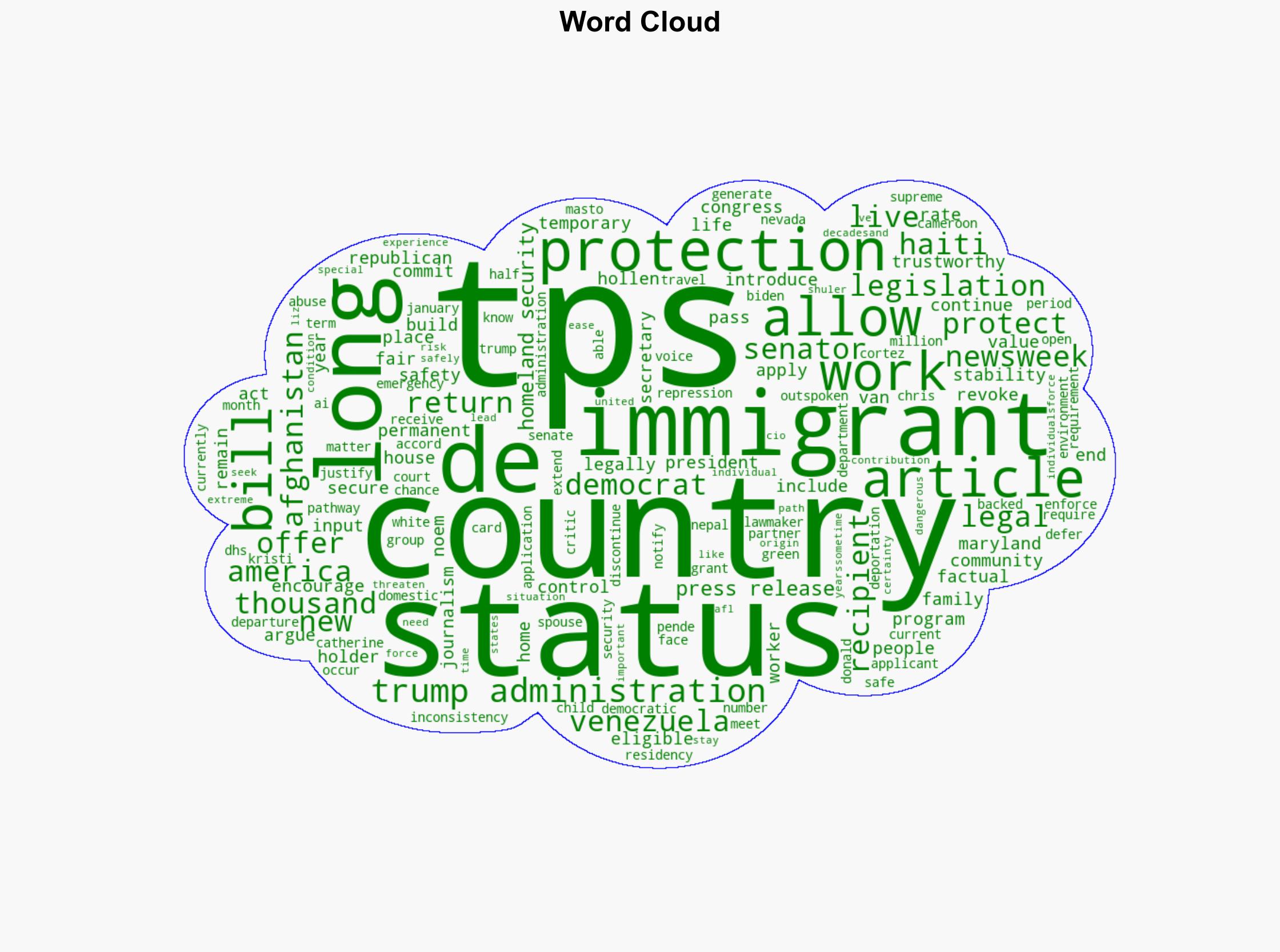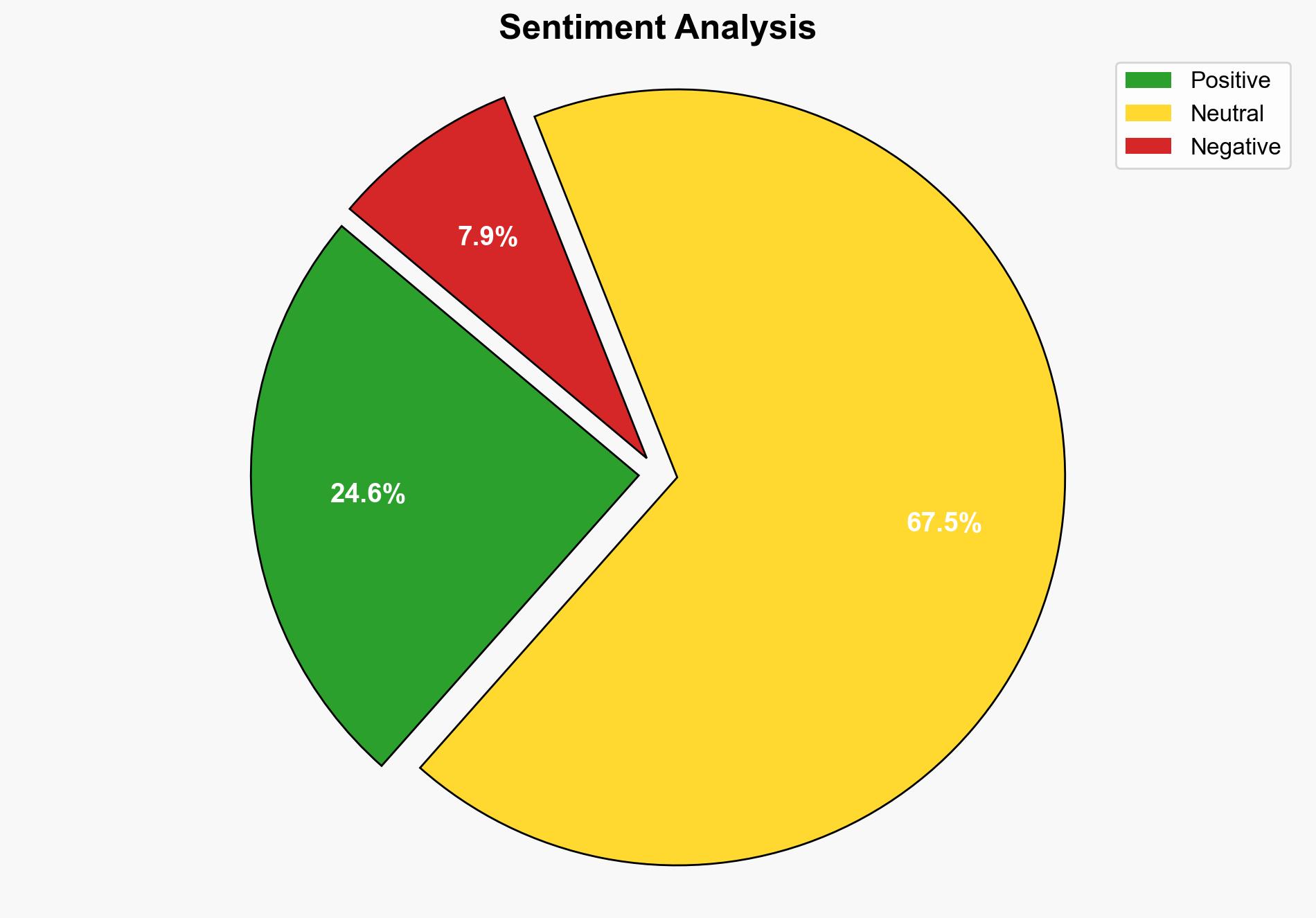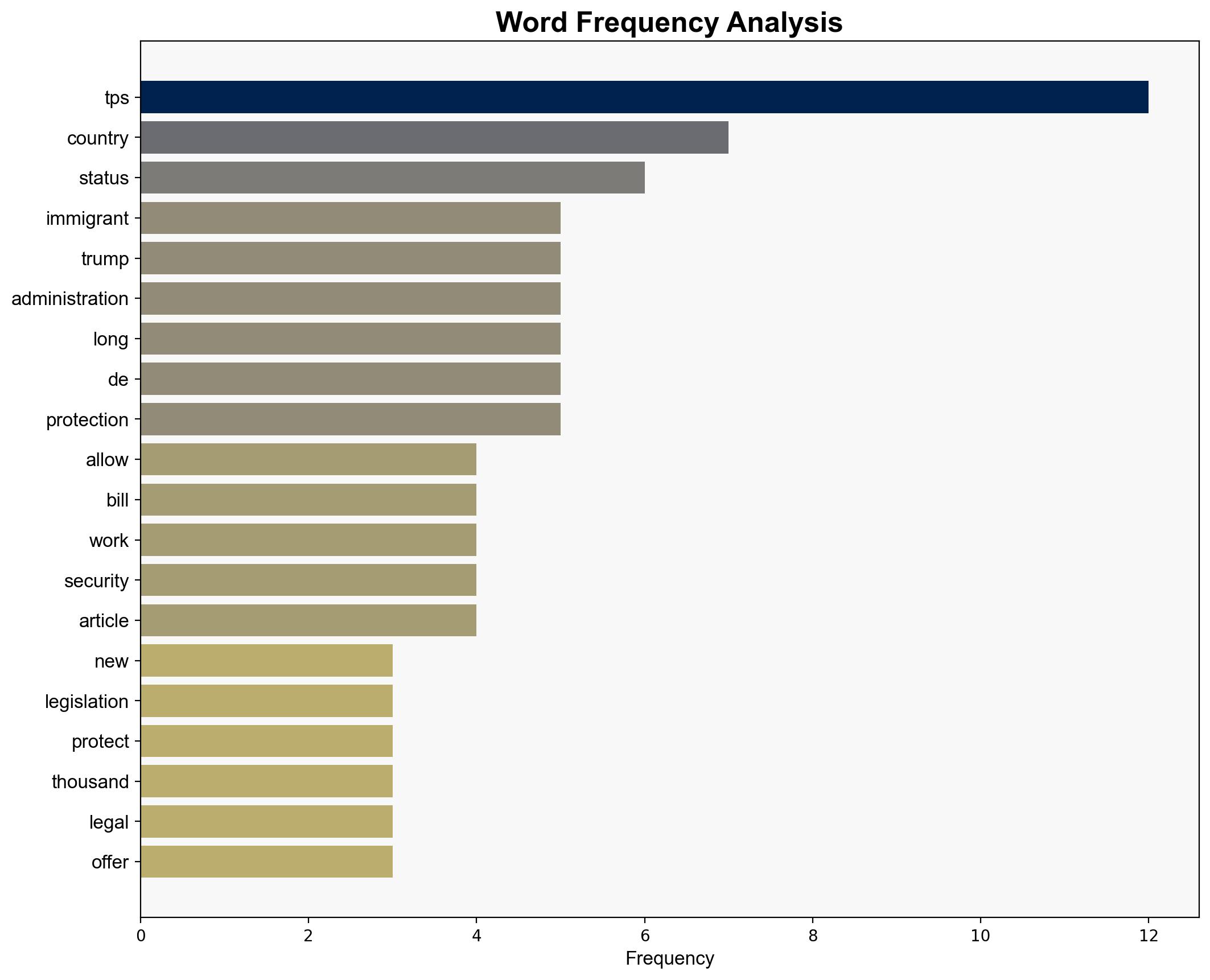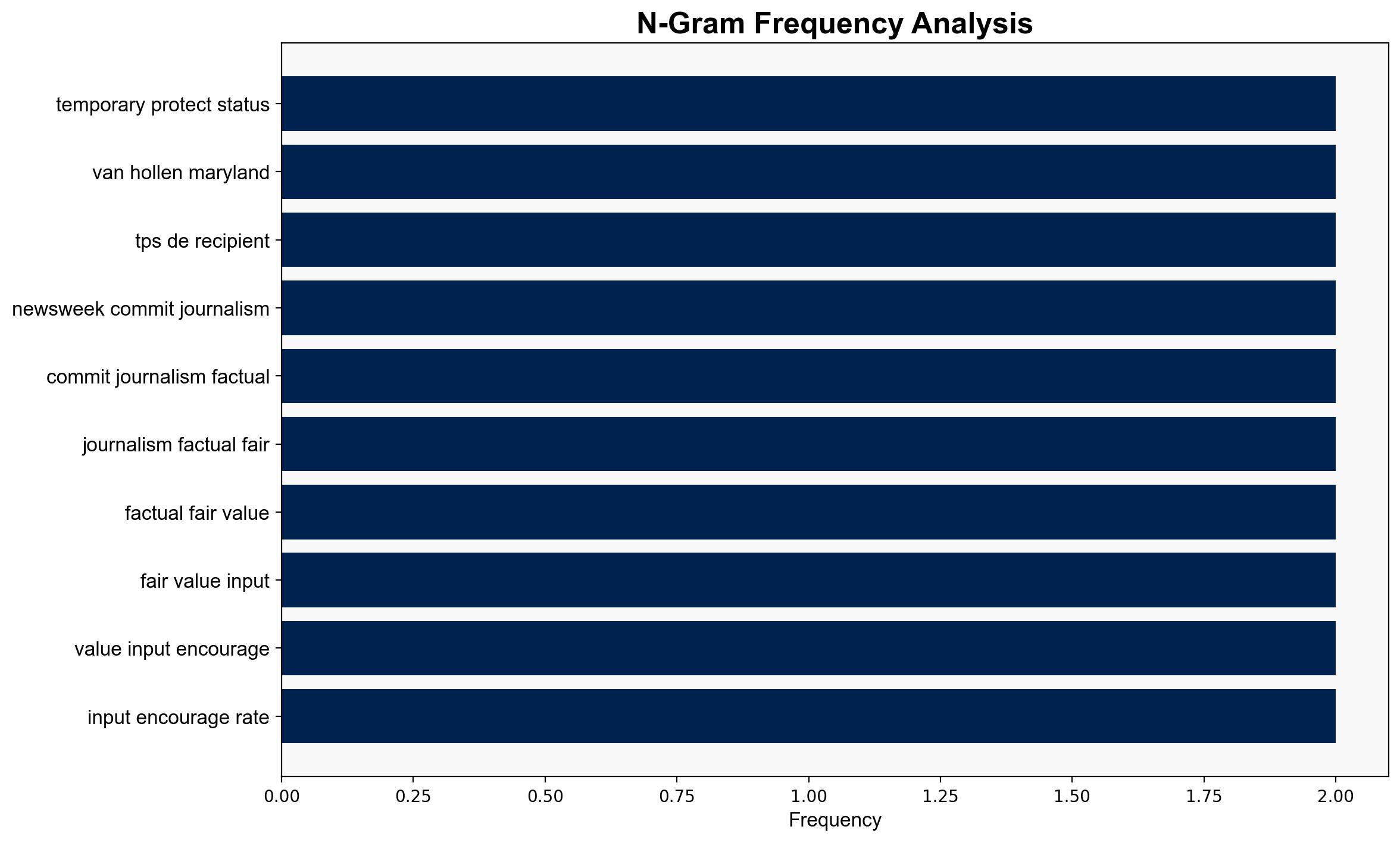Senate Bill Would Protect Thousands of Migrants From Deportation – Newsweek
Published on: 2025-06-23
Intelligence Report: Senate Bill Would Protect Thousands of Migrants From Deportation – Newsweek
1. BLUF (Bottom Line Up Front)
The proposed Senate bill aims to provide long-term protection for migrants with Temporary Protected Status (TPS) and Deferred Enforced Departure (DED), potentially affecting hundreds of thousands. The bill, if passed, could stabilize the legal status of these individuals, offering a pathway to permanent residency. The initiative faces challenges in a Republican-controlled Congress, with implications for U.S. immigration policy and relations with countries experiencing instability.
2. Detailed Analysis
The following structured analytic techniques have been applied to ensure methodological consistency:
Causal Layered Analysis (CLA)
At the surface level, the bill responds to the revocation of TPS under the previous administration. Systemically, it addresses the need for legal stability for migrants. The worldview suggests a shift towards more inclusive immigration policies. The underlying myth is the U.S. as a haven for those fleeing repression.
Cross-Impact Simulation
The bill’s passage could influence regional migration patterns, potentially easing tensions with countries like Venezuela and Haiti. It may also impact U.S. labor markets and economic dependencies on migrant workers.
Scenario Generation
In a best-case scenario, the bill passes, leading to improved migrant stability and U.S. international standing. A worst-case scenario sees the bill failing, exacerbating deportation fears and instability among migrant communities. The most likely scenario involves partial legislative success, with some protections extended.
3. Implications and Strategic Risks
The bill’s potential passage could reduce deportation-related instability but may face significant political opposition. Failure to pass could increase migrant vulnerability and strain U.S. relations with affected countries. Economic implications include potential disruptions in industries reliant on migrant labor.
4. Recommendations and Outlook
- Engage in bipartisan dialogue to address legislative hurdles and build support for the bill.
- Monitor regional developments in countries affected by TPS to anticipate migration trends.
- Scenario-based projections: Best case involves legislative success and enhanced migrant stability; worst case involves increased deportations and regional instability; most likely scenario involves partial legislative success with ongoing political negotiations.
5. Key Individuals and Entities
Chris Van Hollen, Catherine Cortez Masto, Kristi Noem, Liz Shuler
6. Thematic Tags
immigration policy, legislative analysis, regional stability, migrant protection




